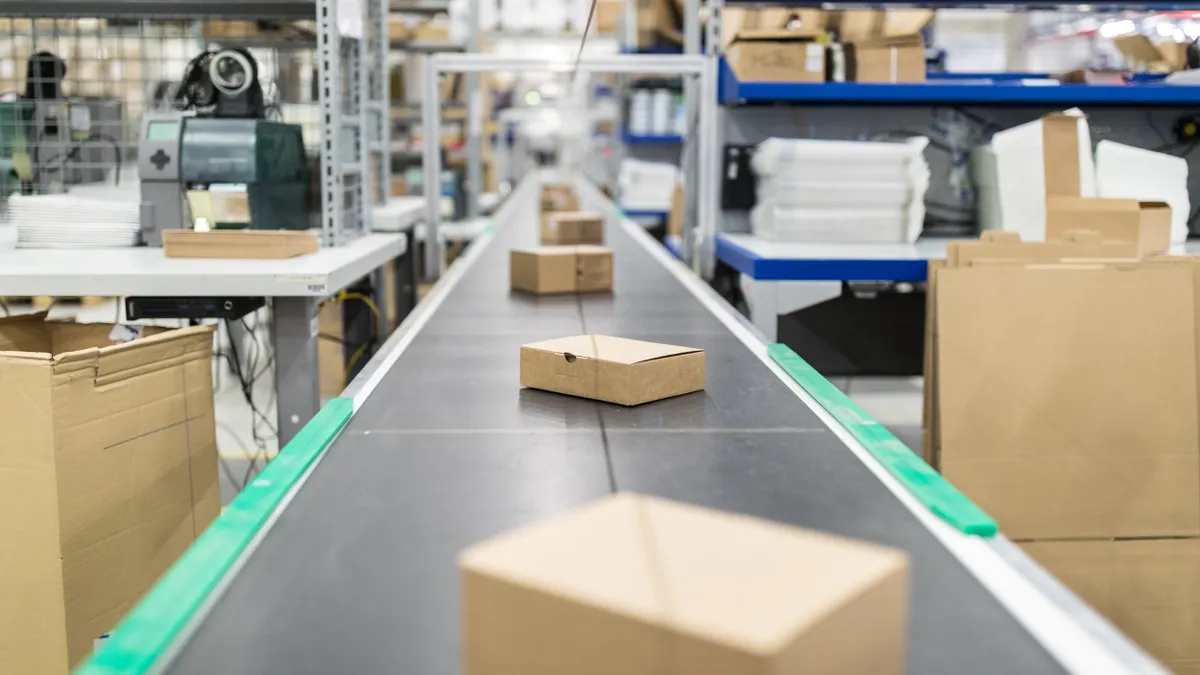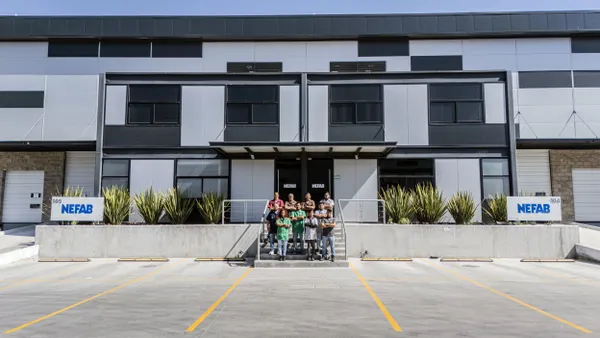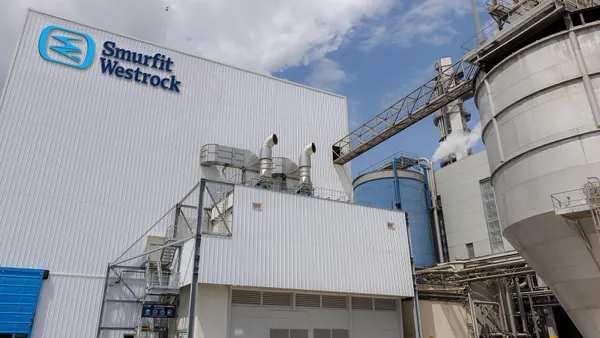Dive Brief:
- PMMI Business Intelligence recently released a report with case studies detailing how artificial intelligence — specifically machine learning, deep learning and generative AI — is already impacting packaging machinery OEMs and their end users, and how it could further transform operations in the future.
- The report discusses how developed technologies in use today can increase staff productivity, improve machine performance and mitigate labor limitations.
- Still, barriers to adoption include cybersecurity concerns, potential accuracy issues and questions about data collection and storage, as well as personnel difficulties such as resistance to change and worries about technology taking jobs.
Dive Insight:
AI’s impacts span industries. In packaging, business leaders have expressed cautious optimism about its potential benefits.
At last year’s Pack Expo, speakers discussed a need for strong security and quality controls. PMMI, the Association for Packaging and Processing Technologies, says that AI will once again feature prominently in this year’s edition of Pack Expo International, happening Nov. 3-6 in Chicago.
Report authors recommend that companies seek expert assistance in developing targeted goals for incorporating AI tools, and to start small and ensure stakeholder buy-in.
Some companies have been vocal about how they’re incorporating AI. Amazon, for example, has leveraged AI in its efforts to rightsize packaging and determine the most efficient form of packaging to ship a certain product. Berry Global released a white paper this year on how AI tools can help analyze consumer preferences and, in turn, create more user-centered sustainable packaging designs.
PMMI’s report notes that, “Although AI is seen as a relatively new technology, machine learning has been present in a variety of forms for many years. It has now progressed far beyond a theoretical concept, with a host of practical applications of AI throughout the packaging industry.”
Technology has the potential to mitigate some critical skills and labor gaps hampering manufacturing. But authors also wrote that technology is not yet far enough along to operate without human oversight. By nature, AI tools are expected to get smarter and more effective with time.
As for how AI could play a role for OEMs specifically, the report notes AI could be applied to cobots to improve safety, efficiency and flexibility to adapt to defects. These advancements could allow for the creation of new robot functions, the report suggests.
Key categories of technology already making an impact include:
- AI assistants could assist with coding, time-consuming administrative tasks, machine manual creation and brainstorming for design and marketing.
- Machine vision systems could aid with quality inspection, product sorting, tamper detection and more. Authors wrote that quality inspection is “notoriously difficult in packaging and processing compared with other industries, due to the inconsistency of products,” and that AI solutions are more accurate than traditional methods.
- Predictive maintenance could help avoid unplanned downtime for machines. “AI models can be trained using manuals, maintenance practices, and customer feedback in response to system alerts,” the report states, informing users about why an alert might have occurred in the first place.
- Digital twins could be leveraged to simulate different plant layouts and determine which is most efficient, thereby optimizing design for operations.
- Connected worker platforms involve cloud-based systems, which may be integrated with an AI assistant, for collecting data on worker productivity and managing tasks. They can offer insight into processes and potentially quality issues or skills gaps at plants.















